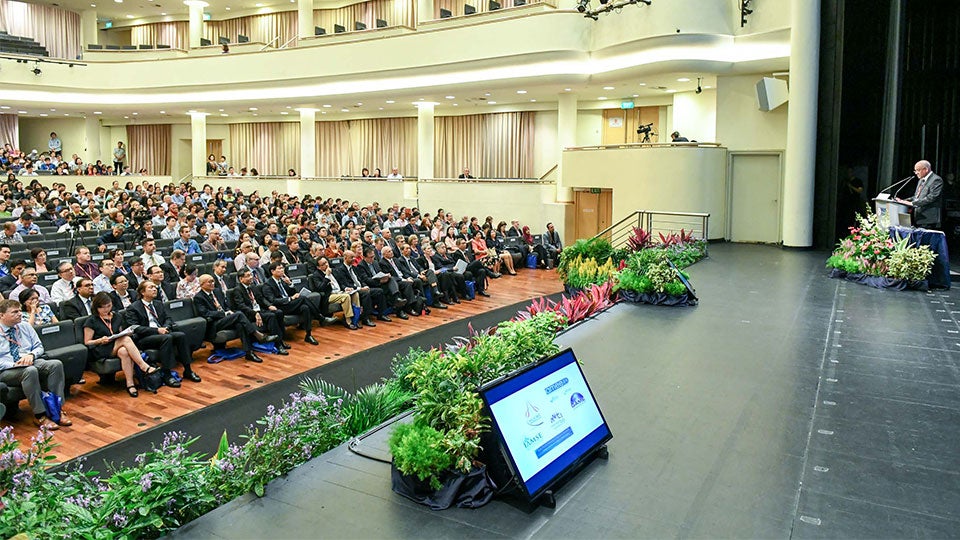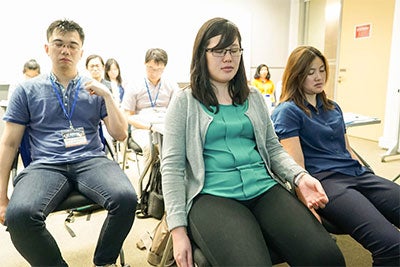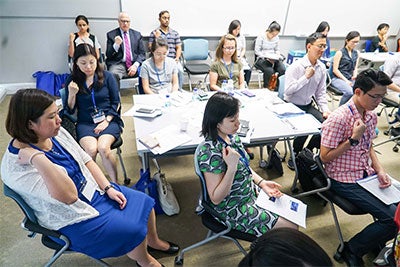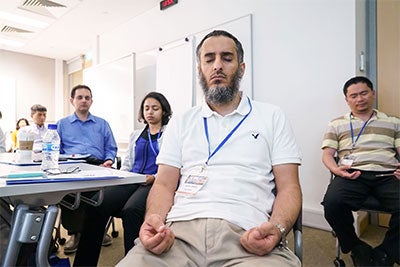The Asia-Pacific's biggest medical education conference returns to Singapore in 2017
Published: 16 Jan 2017

By Professor Matthew Gwee, Department of Pharmacology
The Centre for Medical Education (CenMED) hosted the 14th APMEC in January 2017. The APMEC series was initiated in 2003 with the motto, “Think BIG, Start Small, ACT NOW”. CenMED has built the APMEC series and has progressively developed it to its current status as a major conference in the field of medical education. In fact, we now have more than 1,200 participants from 33 countries, making APMEC the biggest medical education conference in the Asia-Pacific region. We are pleased that APMEC has become a premiere educational conference for the educational scholars around the world.
We live in a globalised knowledge-based economy in which there are unprecedented and almost unhindered movement of people (including healthcare practitioners), goods (including healthcare products) and services (including healthcare delivery) across national borders. Globalisation has spawned the development of global medicine and medical tourism, which have become billion dollar enterprises. Singapore has become a major participant in this aspect of healthcare delivery.
This is the context for the theme for APMEC 2017 – “From Globalisation of Education to Globalisation of Healthcare”. Key members of the Accreditation Council of Graduate Medical Education (International) of U.S.A. participated in the deliberations at APMEC 2017. They provided educational leadership at plenary talks, workshops and panel discussions at APMEC 2017. As always, key opinion leaders in the field of medical education will share their expertise, experience and wisdom with participants. In particular, our invited plenary speakers will review global trends, issues, priorities and strategies current in medical education.
We also subscribe to the global view that education and healthcare are two interdependent systems. Disruptive forces such as advances in medical knowledge, sciences and technology; changing demographics and patient profile; greater emphasis on patient-centred care, patient safety and the team-care of patients have made it imperative for healthcare to match practice requirements that can meet the healthcare needs, demands and challenges of 21st century healthcare delivery. In this context then, medical education must, therefore also carry out reforms to ensure that the end-products of education (i.e. the new generation of healthcare practitioners) will be competent and equipped to deliver 21st century healthcare.
We hope our global view of medical education will not only serve to educate our community of educational scholars and teachers from around the globe, but that it will also serve as inspiration to them to stay current for the benefit of our students and, ultimately, for our respective nations.
Participants in a class about relaxation therapy and mindfulness therapy for healthcare professionals and educators on 12 January 2017.




